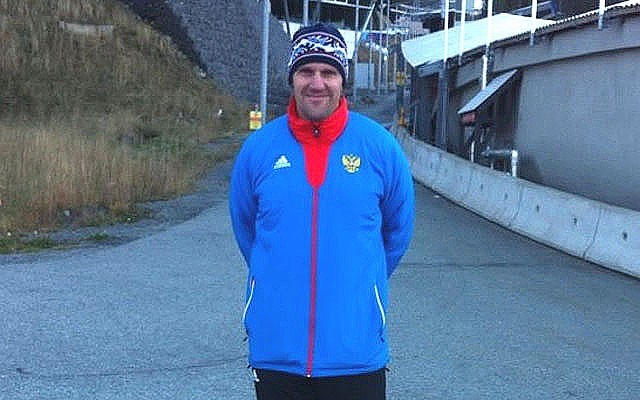Legendary Canadian bobsleigh competitor Pierre Lueders is back on the track in Whistler this week, but this time as a coach — to the Russian team.
Lueders, who won two Olympic medals in the two-man bobsled (gold in 1998 in Nagano and silver in 2006 in Turin), and came fifth at the Olympics in Whistler, took on the role of coaching Canada's national development team after retiring in 2010.
However, in 2012, the Russians, getting set to host their own Olympic Games in Sochi two years later, lured Lueders over as their head coach. In Sochi, the Russians won gold in both the two-man and four-man events.
"I was just looking for a bigger challenge and the opportunity presented itself," said Lueders, who won 85 World Cup medals and another eight World Championship medals as a competitor. "When someone asks you to lead their team into the Olympic Games, it's something that you can't say no to."
As part of the role, Lueders just began a four-week stint in Whistler coaching a contingent of World Cup competitors set to wrap up Nov. 28. A crop of new Russian bobsledders will arrive in the resort Nov. 24 and stay until Dec. 5.
Lueders knows how challenging the course can be — Corner 7 is known as Lueders' Loop after a rare crash for the pilot in the track's early days in 2007 — and he feels his charges can learn plenty, especially early in the season. The Whistler Sliding Centre is renowned for its high speeds and the tight turns sliders need to make to finish.
"This is a good track for teaching people on," he said. "The track is very challenging because of the speed. Especially early in the season, it's a good track to get you at a high level of driving, a high level of concentration very quickly. There's a smaller margin of error that you can make on this track.
"One run here is like three or four runs anywhere else."
When taking over the Russian program, Lueders, of course, knew some of the athletes — his former adversaries. In particular, Alexander Zubkov, a silver medallist in four-man in 2006 and bronze medallist in two-man in 2010, was a part of the double gold rush at the 2014 Sochi Games at the age of 40. Even in the twilight of Zubkov's career, Lueders saw a capacity for improvement.
As coach, Lueders became responsible for several aspects of the program including both short-term and long-term planning. He said it has helped him appreciate the coaches he had as a competitor.
"Whether they were great coaches or good coaches or bad coaches, you learn something from all of them," he said. "With the athletes that I coach now, I see a lot of mistakes that I made as an athlete where coaches actually should have been more involved and should have pushed us to do more sliding.
"Some of the mistakes I made myself, I don't want to have happen to these athletes."
Among Lueders' regrets was not training at the Whistler Sliding Centre as much as he'd have liked leading up to the 2010 Games. Estimating he did between 175 and 180 runs beforehand, he feels another 150 repetitions would have been beneficial in the golden chase. After he began coaching, he realized his learning curve was starting to incline more slowly, something he wishes he'd noticed sooner in hindsight.
"I had a few crashes and things," he said. "In the four-man, I hadn't crashed in 15 years, and I started having them here.
"I needed to push myself more than I did, and I only really realized that once I started coaching."
Lueders was born in Edmonton and now resides in Calgary, regularly travelling to Moscow and Sochi for his coaching duties.




